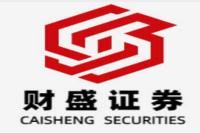EU Sanctions on Chinese Companies: A Deep Dive into Unilateral Actions and Geopolitical Implications
Meta Description: Understanding the EU's sanctions on Chinese companies, exploring the geopolitical ramifications, examining China's response, and analyzing the implications for global trade. #EUChinaRelations #Sanctions #Geopolitics #InternationalTrade #UkraineConflict
This isn't just about a press release; it's about the unraveling of trust, the escalating tensions between economic giants, and the chilling effect on global cooperation. The recent EU sanctions targeting Chinese entities, veiled under the guise of countering Russia's aggression in Ukraine, have sent shockwaves through the international community. This isn't simply a matter of economics; it's a geopolitical chess match played on a global scale, with far-reaching consequences for businesses, consumers, and international relations. We'll dissect the EU's justifications, explore the nuances of China's robust counter-arguments, and delve into the potential domino effect these sanctions could trigger. Prepare to unravel the complexities of this high-stakes game, understand the motivations behind the players, and anticipate the potential future scenarios that could unfold. We'll examine this situation not just from a purely economic perspective, but also through the lens of international law, political strategy, and the ever-shifting sands of global power dynamics. This in-depth analysis will equip you with the knowledge needed to navigate the complexities of this evolving situation and form your own informed opinion. Forget the headlines; let's get to the heart of the matter. This isn't just news; it's a story of power, influence, and the future of global cooperation. Are you ready to dive in?
EU Sanctions on Chinese Companies: A Detailed Analysis
The European Union's recent decision to sanction several Chinese companies under the guise of its 15th round of sanctions against Russia has ignited a firestorm of controversy. This move, unprecedented in its scope and implications, signifies a significant escalation in the already strained relationship between the EU and China. The EU claims these sanctions are necessary to prevent circumvention of its measures against Russia, specifically regarding the supply of materials used in the conflict in Ukraine. However, China vehemently rejects these accusations, viewing the sanctions as an act of unilateralism, lacking any basis in international law and undermining established norms of fair trade practices.
The EU's justification hinges on allegations that certain Chinese entities have been directly or indirectly assisting Russia's war effort. The specifics of these accusations, however, remain largely shrouded in secrecy, fueling accusations of a lack of transparency and due process. This opaque approach has raised concerns among observers who point to a potential bias and a lack of concrete evidence supporting the EU's claims. The EU's actions have been criticized for potentially setting a dangerous precedent, allowing for arbitrary sanctions against any nation deemed a threat, regardless of the evidence or due process.
The Chinese Perspective: A Matter of Principle and Sovereignty
China's response has been swift and resolute. The Chinese government flatly rejects the EU's accusations, emphasizing that it has consistently maintained a neutral stance on the Ukraine conflict. They have repeatedly stated their commitment to peaceful resolution and have categorically denied providing lethal weapons or other materials that could directly contribute to the conflict. Furthermore, China has highlighted its stringent controls on the export of dual-use goods, including drones, boasting some of the strictest regulations globally. This isn't just rhetoric; China has actively sought to promote peace talks and has undertaken significant efforts to facilitate dialogue between the warring parties.
The Chinese government views the EU's sanctions as an act of economic bullying and a blatant disregard for international law. They argue that such unilateral actions, taken without the authorization of the UN Security Council, severely damage international cooperation and undermine the principles of multilateralism. This isn't merely a trade dispute; it's a fundamental challenge to the existing global order. Chinese officials have voiced concerns that these sanctions could set a dangerous precedent, paving the way for similar actions against other countries. This, they argue, could severely destabilize the global economy and lead to a new era of trade wars and protectionism.
The Chinese government has also highlighted the potential negative impact on Chinese businesses and citizens, emphasizing its commitment to protecting their legitimate rights and interests. This commitment goes beyond mere words; the government has pledged to take all necessary steps to mitigate the adverse effects of the EU sanctions.
Geopolitical Implications: A Shifting Landscape
The EU's sanctions against Chinese companies have profound geopolitical implications. This move represents a significant shift in the EU's approach to China, marking a departure from the previous policy of engagement and cooperation. This signals a growing divergence in the interests and priorities of the two economic giants, potentially paving the way for greater confrontation in the future.
The sanctions also highlight the increasing complexities of navigating the geopolitical landscape in the post-Cold War era. The Ukraine conflict has become a focal point for global power dynamics, with the EU and China increasingly finding themselves on opposite sides of the issue. This could lead to a further polarization of the international system, impacting global governance and cooperation on a range of issues. The sanctions also raise questions about the effectiveness of unilateral actions in addressing complex geopolitical challenges. Many observers argue that such actions are more likely to exacerbate tensions and undermine efforts towards peaceful resolution.
The Impact on Global Trade: A Ripple Effect
The EU sanctions on Chinese companies have the potential to significantly disrupt global trade flows. The targeted Chinese companies play a crucial role in various supply chains, and the sanctions could lead to shortages, price increases, and disruptions in production. This could have far-reaching consequences for businesses and consumers worldwide.
Moreover, these sanctions are likely to fuel protectionist sentiments and exacerbate existing trade tensions between the EU and China. This could lead to retaliatory measures from China, further escalating the conflict and jeopardizing global economic stability. The actions of the EU raise questions about the future of globalization and the potential for similar actions taken by other nations.
The longer-term implications are uncertain, but the initial impact suggests a significant disruption to established trade patterns. The increased uncertainty and the potential for further escalation could negatively impact investor confidence and global economic growth.
FAQ: Addressing Common Concerns
Here are some frequently asked questions regarding the EU sanctions on Chinese companies:
-
Q: What is the legal basis for the EU sanctions? A: The EU claims the sanctions are based on its legal framework for imposing restrictive measures, but these are contested by China as not meeting the standards of international law. There is no clear consensus on the legality of these actions.
-
Q: What specific Chinese companies are impacted? A: The EU has not publicly released a comprehensive list of all the sanctioned entities, citing concerns about jeopardizing ongoing investigations. This lack of transparency is a major point of contention.
-
Q: What are the potential consequences for China? A: China may experience significant economic repercussions, including decreased exports and investor confidence. However, China is also likely to retaliate, potentially impacting the EU and other countries.
-
Q: What are the potential consequences for the EU? A: The EU could face reputational damage, as well as economic repercussions, including higher prices for consumers and potential supply chain disruptions.
-
Q: What role does the UN play in this situation? A: The UN Security Council has not authorized these sanctions, which China argues renders them illegal under international law. The UN's role is largely limited to diplomatic efforts to de-escalate tensions.
-
Q: What is the likelihood of further escalation? A: The risk of further escalation is high. Retaliation from China is almost certain, and the EU may respond in kind. This could lead to a broader trade war with severe global implications.
Conclusion: Navigating a Complex Geopolitical Landscape
The EU's decision to sanction Chinese companies is a significant development that has far-reaching implications for global trade, economic stability, and international relations. It underscores the growing tensions between the EU and China and highlights the complexities inherent in navigating the increasingly fragmented geopolitical landscape. While the EU claims its actions are aimed at preventing circumvention of sanctions imposed on Russia, China maintains that the sanctions are baseless and a violation of international law. The situation is likely to continue to evolve, with considerable uncertainty regarding the ultimate outcomes. The international community must find a way to de-escalate tensions and foster dialogue to address these challenges. The future of global cooperation hangs precariously in the balance.



